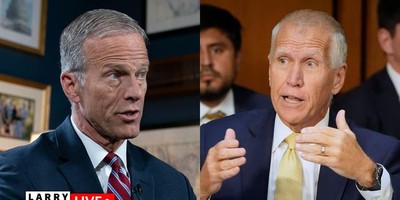As Part One of this article revealed, some of the games being played behind closed doors by the Fed are legal and some illegal, but all of them are troubling.
It was a clear violation of Section 14 (B) the Federal Reserve Act to buy $1.5 trillion of mortgages not guaranteed by the federal government. The agency hid behind Section 13.3 language allowing a broad scope of action under “ unusual and exigent circumstances,” but the statute states clearly that Section 13.3 loans can only be short term and backed by high quality collateral, a requirement that was blatantly ignored.
It was also a violation of both the Fed statute and the Constitution to offload potential Fed losses from its hedge fund-like operations onto the Treasury, as was done stealthily via a note to the Fed’s Statistical Release H 4.1 dated January 6, 2011. The Treasury ( ie. The taxpayers) having to bail out the Fed is not just a theoretical possibility. The Fed’s annual report just released shows a $53 billion unrealized loss.
It would also appear to be a violation of the Constitution to locate the new Consumer Financial Protection Bureau created by the Dodd- Frank Act inside the Fed. The Constitution requires that all government expenditures be authorized and funded by Congress. The Fed has always been treated as an exception. It uses income on securities it has bought with newly created money to pay its bills and has not even been subject to Congressional oversight.
Having a secretive, self-funded, extra-constitutional agency inside government was bad enough when the Fed consisted of seven governors and a few staff members. The new Consumer Bureau already employs an estimated 1359 people and keeps growing. Many of these employees were transferred from other government agencies where they formerly had been counted as part of the federal budget, but are now suddenly off-budget. If this is allowed to stand, what other federal agencies will be slipped inside the Fed in future in order to reduce the reported Federal deficit?
Recommended
Some of the Fed’s actions since the Crash have been perfectly legal, but also designed to escape detection by the press and public. For example, in the dark days of the 2008 crash, a provision was buried deep in the TARP bill passed by Congress authorizing the Fed to pay interest to banks on their lending reserves. This made it legal for the Fed to print money and hand it over to the banks in unlimited amounts. One wonders how many members of Congress were aware they were passing this?
Today the Fed pays ¼ of 1 percent interest on trillions of dollars of unused bank reserves. An estimated 37% of that is paid to foreign banks. This is a grey area legally. One wonders how many members of Congress know about it.
During the Crash itself, as much as 70% of Fed discount window loans seem to have gone to foreign banks at rates as low as 0.01%. In other words, we made huge gifts to foreign banks.
If the economy gets overheated, the Fed says that it will simply increase the interest it is paying on bank reserves to ensure that those reserves aren’t turned into loans to business and consumers. But the more money that is created to pay interest on unused reserves, the bigger the unused reserves become. In typical government style, a problem will be alleviated short term only at the cost of making it worse in the future.
After reading this article, you might conclude that someone should sue the Fed over its illegal actions. Unfortunately taking the Fed to court is easier said than done. Under federal law, you must have “standing” to sue. Ordinary citizens are deemed not to have standing. Under recent court decisions, even banks do not seem to have standing, despite their being regulated by the Fed.
Fed illegality can best be addressed by Congressional action. Congress created the Fed and can reform it or even shut it down. There are critics of the Fed in Congress, but not nearly enough of them. And there are reasons why Congress mostly leaves the Fed alone.
It is the Fed that backstops federal deficit spending. Without the Fed, government could not continue indefinitely spending more than its tax revenue. So long as politicians think they benefit from the expansion of government and runaway spending, they will not want to reform the Fed.
Read More at Against Crony Capitalism.org

























Join the conversation as a VIP Member